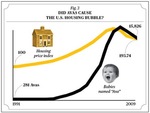Kottke says that all the slice&dice data options at NameTrends.net are the new "gold standard for baby name web doohickeys."
I still like the elegance of NameVoyager's "starts-with" visualizations better. Even if NameTrends' added sorts, like names with similar popularity curves, and spelling patterns [e.g, names ending in '-don,' names with 'mm'] are interesting additions, they only look at the top 2000 names, and they're limited to 20 or so predetermined patterns. And their six measly categories [androgynous, gems, occupations] are pretty spotty.
The SSA has its data, with its rudimentary name search and top ten lists; the Atlanta Journal Constitution has created a search of Georgia's birth records. It all makes me wonder why, if all this name data is sitting out there in public records, why someone doesn't compile a giant, open, common databall that people can build all sorts of searches and tools on top of.
Back in the day, name books were just alphabetical lists of origin and a one-line definition. The top names covered a much larger percentage of kids [I need to check the data, but I think 89% of girls born in the 1930's were named Mary, for example.] And in the last couple of decades, elaborate category-based name books emerged. But what are they but hard copies of someone else's subjective slicing and dicing of some unspecified name pool? Has the availability of massive amounts of name data somehow changed the way people choose a baby name? What does it all mean?? I don't have any naming events on the horizon, and we're technically on vacation, so I'll leave it to you to figure out...
NameTrends.net [nametrends.net via kottke]



Have you seen the NameVoyager at BabyNameWizard.com?
According to their FAQ:
"Where does this information come from?
The NameVoyager tracks names of babies born in the United States, as reported by the Social Security Administration (SSA). We have cleansed the raw SSA data and performed statistical transformations to allow meaningful historical comparisons."
It helped my wife and I rule out scores of names for our daughter because they were trending upward. Regionality is a factor that it doesn't consider, tho' -- There are a scant few Jaden's and Kaden's up here in Seattle, but waaaay too many Ruby's and Grace's.
Never mind -- Daddy needs to read the article before commenting on the article.
heh, no sweat. The real geographic split is probably by zip code, cross-referenced with parents' education and income levels.
We've definitely used those tools to avoid popular names or quickly rising names. In fact, when my toddler was just 2 days old and I couldn't get comfortable with his name (Noah), I remember one key moment being looking it up and seeing it had been ranked 5th. 5th! We changed it that day to something that doesn't even rank on any of the charts :) Of course it's more important that the new name feels right. but there was a role for the data too.